I am working on a project with embedded Python in C++ and have run into an issue with pandas DataFrames with datetimes/Timestamps.
When adding datetime objects to pandas, if they are within the range of Timestamp they seem to get auto-converted into a Timestamp object. For example:
This is problematic on the C++ side because I am using the PyDateTime API to extract the time information, and the pandas Timestamp object does not seem to be compatible.
For context, I am using boost python to extract the object, then I get the PyObject pointer out of the boost object and try to get the date data.
Here is what I am using to extract the date and time information:
if(PyDateTime_Check(pyObj)) {
SQLSMALLINT year = PyDateTime_GET_YEAR(pyObj);
SQLUSMALLINT month = PyDateTime_GET_MONTH(pyObj);
SQLUSMALLINT day = PyDateTime_GET_DAY(pyObj);
SQLUSMALLINT hour = PyDateTime_DATE_GET_HOUR(pyObj);
SQLUSMALLINT minute = PyDateTime_DATE_GET_MINUTE(pyObj);
SQLUSMALLINT second = PyDateTime_DATE_GET_SECOND(pyObj);
SQLUINTEGER usec = PyDateTime_DATE_GET_MICROSECOND(pyObj);
}
None of the PyDateTime/PyDate/PyTime_Check functions will return true with pandas Timestamp objects, and all the extraction methods get seemingly random numbers if I try bypassing that check.
How do I actually get the relevant date/time information out of the Timestamp objects? Is there a way to get them directly (some API I missed), and if not is there a way to convert the pandas Timestamp object into a PyDateTime object? I can use the boost API or the boost::numpy API as well if needed, as I have them in my project already.
I hope not to have to modify the objects in the actual Python namespace, only on the C++ side after extraction, but if there's no other way it's not out of the question.
